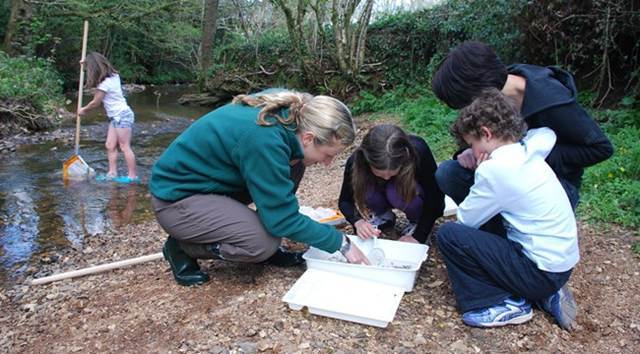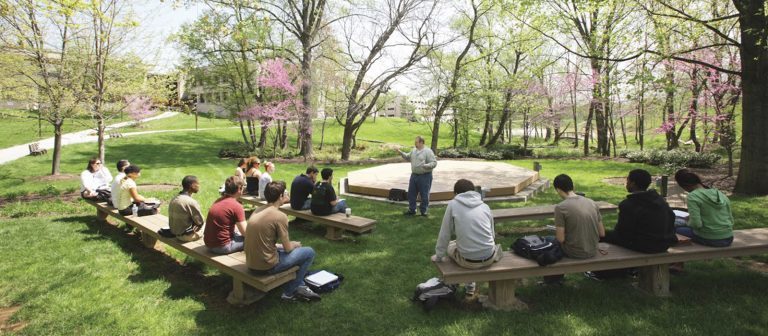The benefits of outdoor learning
November 22, 2016
Outdoor learning is not a new concept. Outdoor education was widely practiced in ancient Rome and Greece. As a matter of fact, about 200 years ago there were more students learning outdoors but the Western concept of learning between walls has prevailed. Today it seems that the trend and demand for flexible outdoor learning environments in an educational setting is returning.

According to experts, learning outside the walls of the classroom has many benefits. The concept of outdoor learning can encompass a broad range of activities. For example, there are many students that take field trips as a learning experience, but in a stricter sense outdoor learning means the educational environment outside.
Research has confirmed that individuals learn in different ways. But according to many of these studies, the positive effects of outdoor learning are indisputable support the growth and education of students regardless of their learning style or age. The benefits of outdoor learning are far-reaching and can have a great impact on students.
- Outdoor learning can be improve attendance. Students are more engaged when things they are learning are observed in environments outside of the classroom. This is a great way to improve the academic performance.
- Outdoor learning in an educational environment can improve student behavior. This is especially true for students with behavioral issues such as being overactive or being inactive.
- A new environment can make teaching and tutoring any subject more relevant to the students. Practitioners of outdoor learning say that they can bring the subject to life and make the learning experience more vivid and lively. Students simply can't experience the same excitement when they are within the four walls of their classroom.
- When teachers, professors or tutors take their students to natural or man-made attractions associated with the subject matter, students are exposed to other people who are knowledgeable in that subject matter. This will help them learn firsthand from people who have experience with the subject being taught and perhaps boost their enthusiasm and engagement.

- Students involved in outdoor learning also acquire some useful skills. They get an opportunity to try new things. In some cases, this practice can help them realize if they like or dislike certain environments. The best part is that it won’t take much time before they figure out.
- Outdoor learning helps the subject to be taught in a more interesting way by changing the learning environment. It is amazing how a simple change can help students discover a new passion or interest.
- Outdoor learning, especially visits and fieldwork, can provide positive effects on memory because of the unforgettable new educational setting. Efficient fieldwork and outdoor experience can result in individual growth and social skills improvement. (1)
- Depending on the place where this type of education is performed, students can also experience improvement of their physical, spiritual and mental health. (2) Outdoor learning often takes place in completely natural settings which has a great impact on any category of students.
- Besides the broadened horizons, students can also expect great enjoyment, development of personal qualities skills, boosted self-confidence and self-esteem and increased motivation.

Outdoor learning is an excellent opportunity to enhance the learning process. The list of benefits of this specific type of learning is very long, so it’s no surprise why this mode of learning is becoming so popular.
Traverse Landscape Architects has been engaged in improving the built environment and enhancing the human experience through design on a wide range of educational projects. Our projects maintain an imaginative and rigorous design process that is informed by the sites we work on and guided by the needs of our clients. As part of our practice, we are continually focused on innovation in the design of outdoor educational facilities to improve the experience of both student and faculty. While we know that some of our ideas are already being developed and some are far-fetched, the continued development and search for innovation are ingrained in our practice
“Let your walks now be a little more adventurous.”
– Henry David Thoreau
- A Review of Research on Outdoor Learning by Mark Rickinson et al. Field Studies Council, 2004.
- https://www.theguardian.com/teacher-network/2016/jul/17/tips-tricks-teachers-how-outdoor-learning-boosts-student-wellbeing


